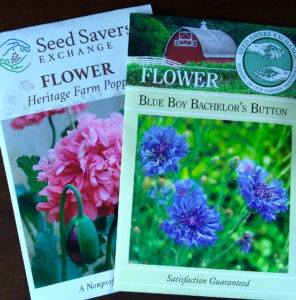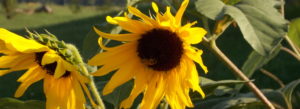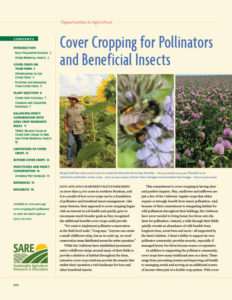Bug Jugs, Homemade Herbicide, Garden Dust
If you're a backyard orchardist and garden enthusiast here are three recipes to keep your fruit trees pest free, kill weeds, and repel cabbage worms. Best of all - the ingredients are right in your kitchen or available at a garden center.
'Bug jugs' protect fruit trees by trapping apple maggots and moth larvae. The weed control recipe is a safe herbicide that controls vegetation around young trees and kills garden weeds. And the third recipe for garden dust effectively controls cabbage worms and larvae. These recipes are safe to use around kids, pets, and pollinators.
Insect Traps for Fruit Trees
Fruit trees need special care; pruning, dormant oil, weed suppression and pest control. Here's a solution that's a safe and effective control to protect fruit from pest damage.
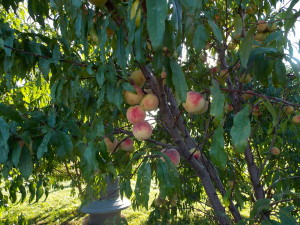
Bug Jugs
- clean gallon jug
- 1 cup of sugar
- 1 cup of apple cider vinegar
- 1 banana peel
- enough water to fill the jug 1/3 full
Tape the cap to the bottom of the jug (for easy disposal because the jug will be full of gross, dead pests). Place the banana peel inside the jug, add the remaining ingredients.
After the blossoms are set hang one jug per inch of tree diameter. Use wide twine or a soft cloth tied through the jug's handle to hang them. Don't use thin string or fishing line because it cuts into the tree's protective bark.
Weed Control
Eradicate and control weeds use the following recipe, It's is very effective and with a few precautions it's safe to apply.
Homemade Herbicide:
Mix all the ingredients together. 20% vinegar is available at farm and garden supply stores or through online retailers.
Wear gloves and eye protection, 20% vinegar can burn on contact.
When applying in small areas, or to kill weeds in close proximity to desirable plants, use a dish sponge wand filled with this solution. Wipe the leaves of undesirable plants.
For larger areas use with a garden sprayer.
Apply in dry, warm weather. A second application may be necessary for tougher weeds.
Be careful - this mixture will kill all plants, both desirables and weeds.
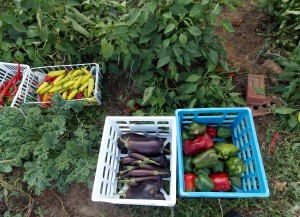 Control Garden Pests
Control Garden Pests
The final recipe is for controlling garden pests, especially cabbage worms.
Garden Dust
- 1 cup Diatomaceous earth or all-purpose flour
- 3 TBS Cayenne pepper
Sift the ingredients together and apply with a garden duster or use a screen sifter (your kids sandbox sifter works great for this) dust plants in the morning while they're wet with dew.
Diatomaceous earth is available at garden centers, farm supply stores and online. It will repel a larger variety of pests than household flour, but we've been successful using both.
Apply this mixture a couple of times per week or after it rains.
These three recipes are a practical and powerful alternative to harsh chemicals.
Happy Gardening!
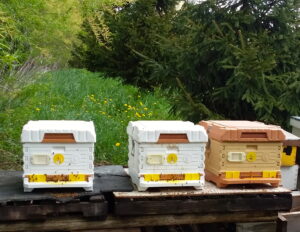
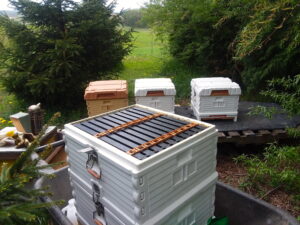
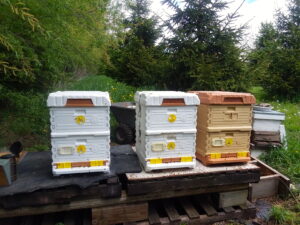
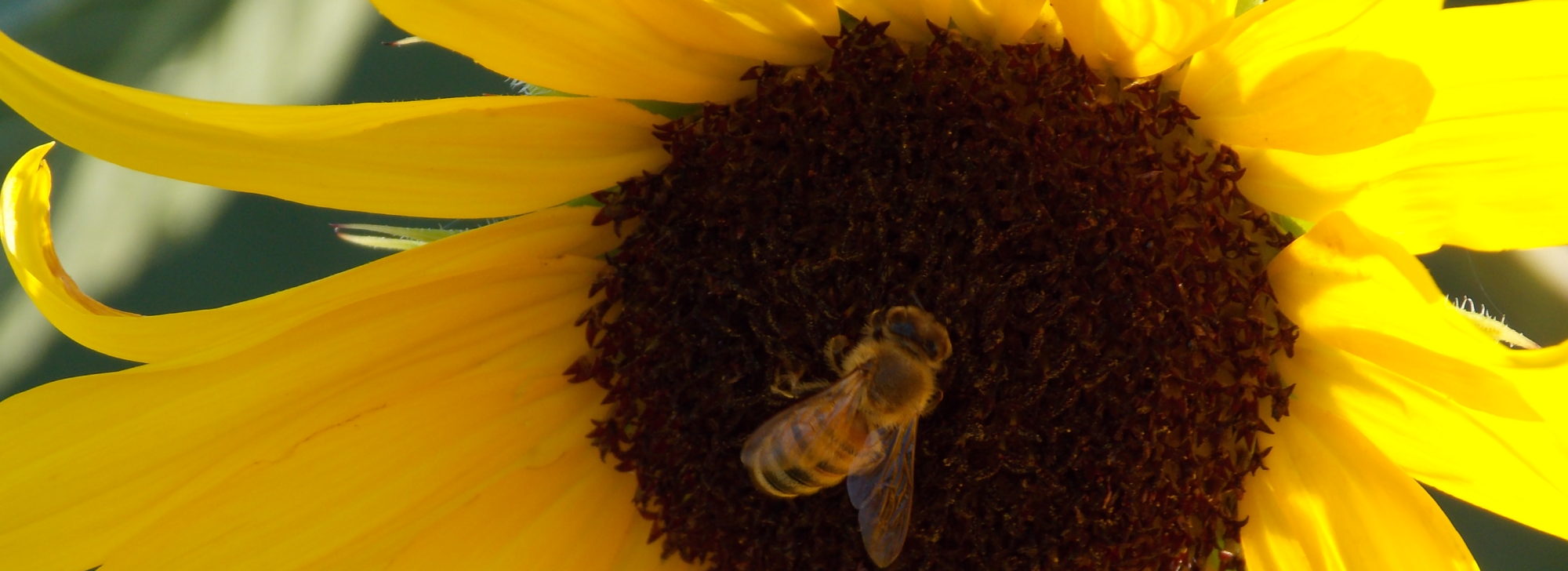
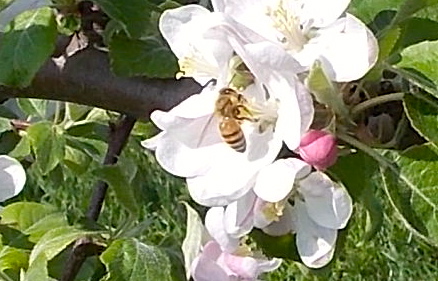
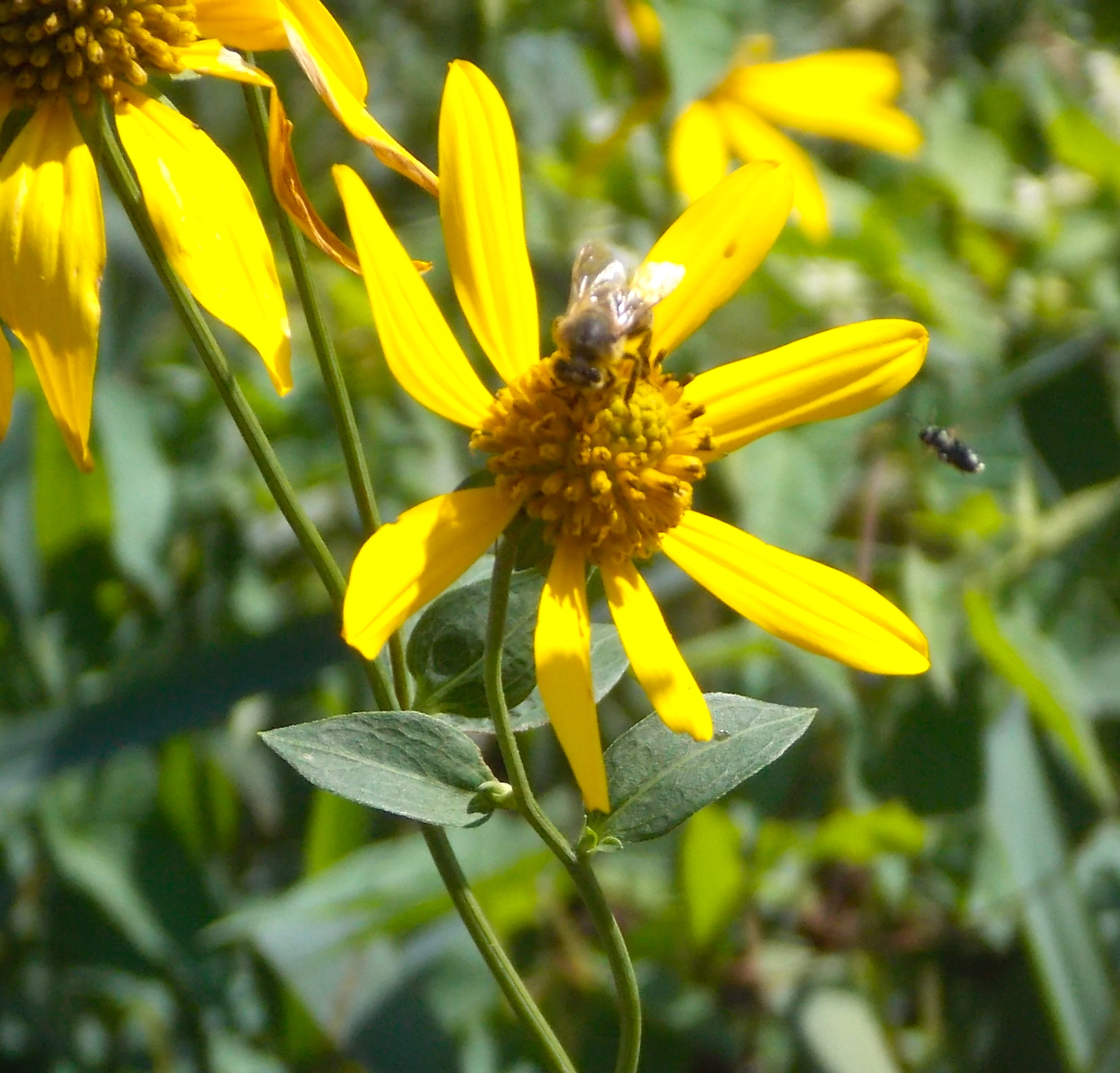
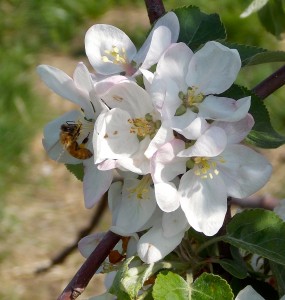 What does this have to do with you...
What does this have to do with you...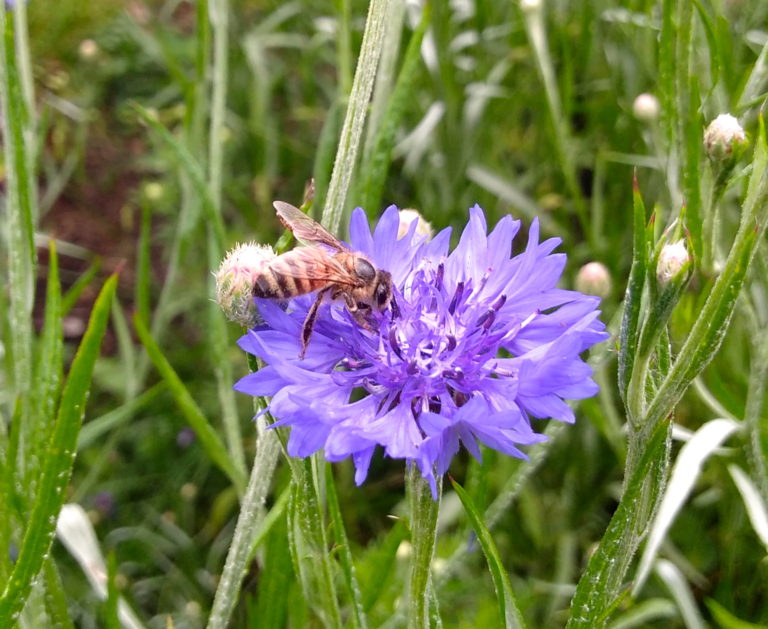
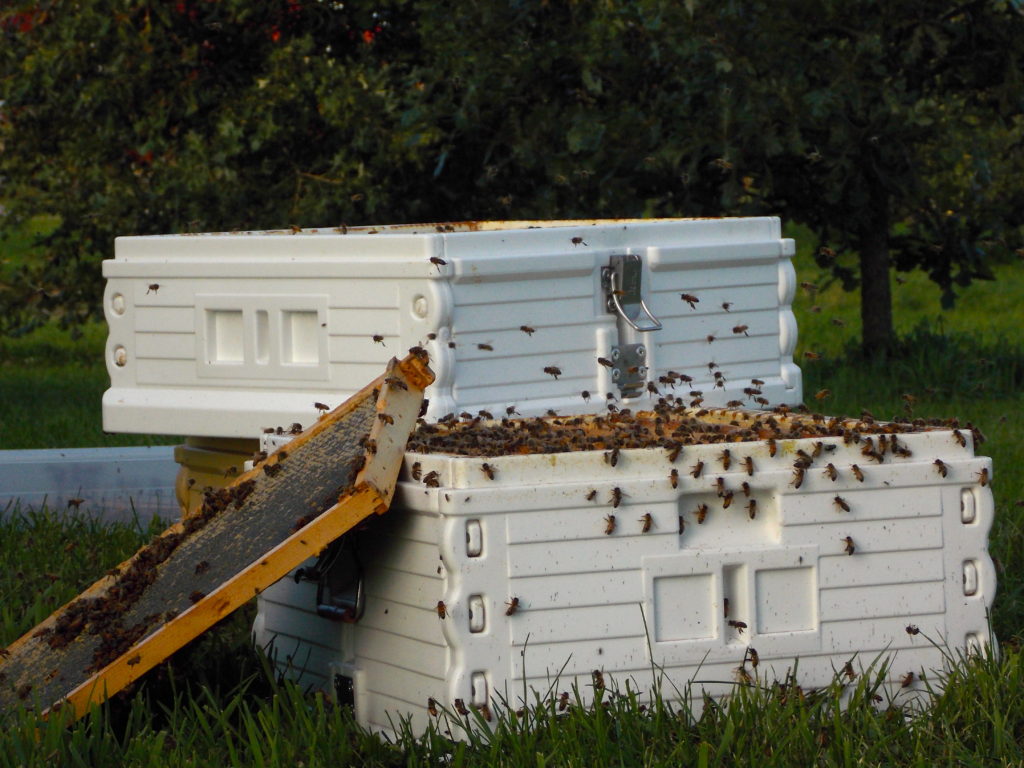
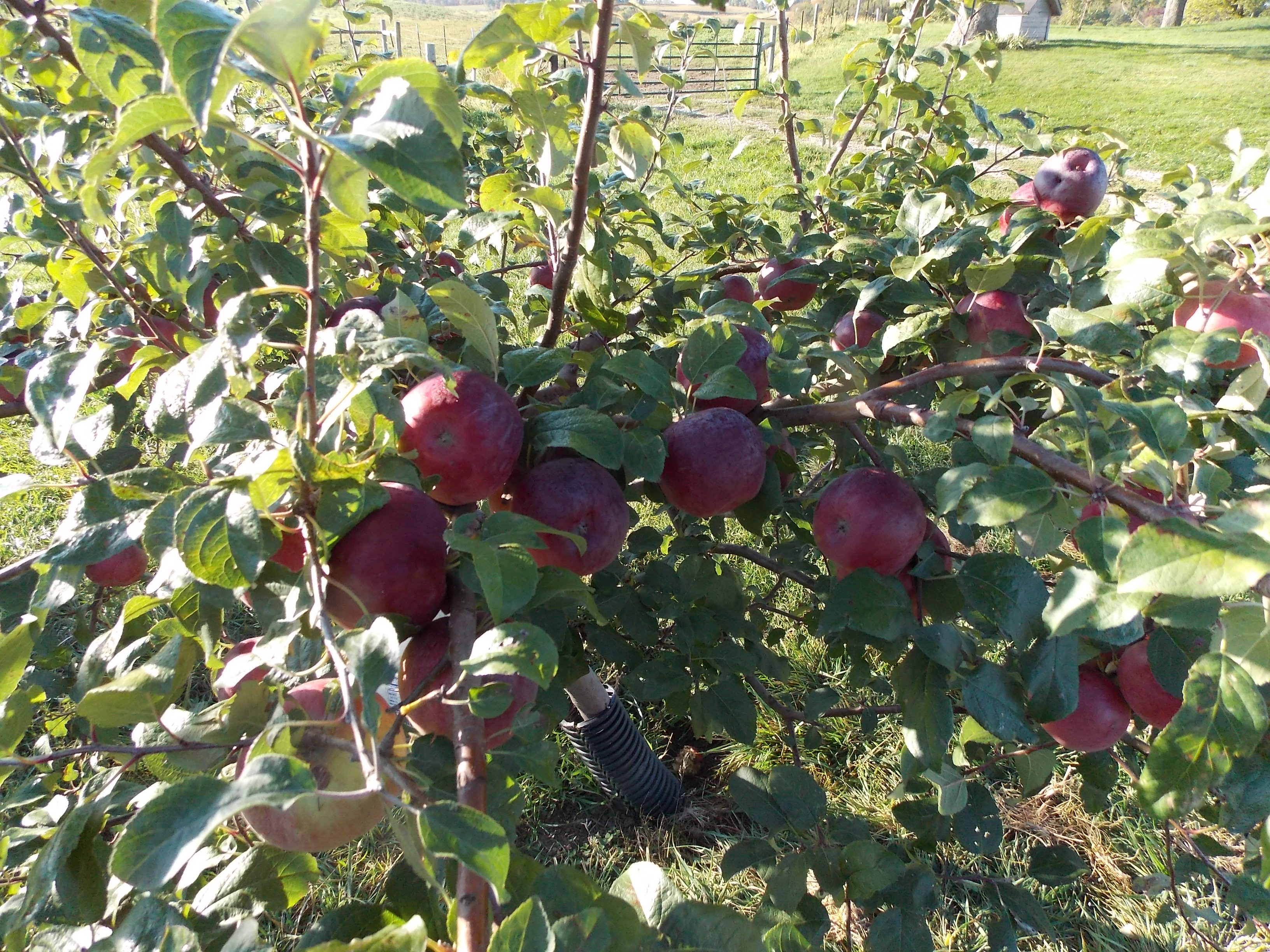

 Control Garden Pests
Control Garden Pests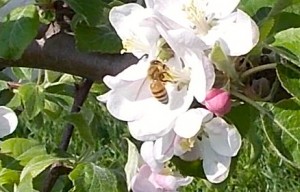
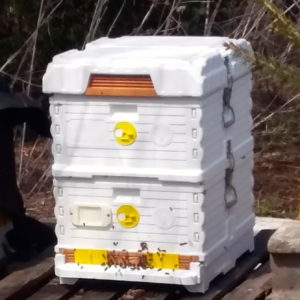
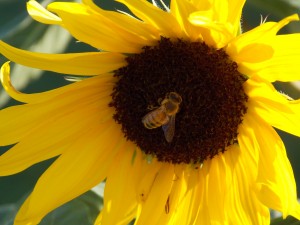
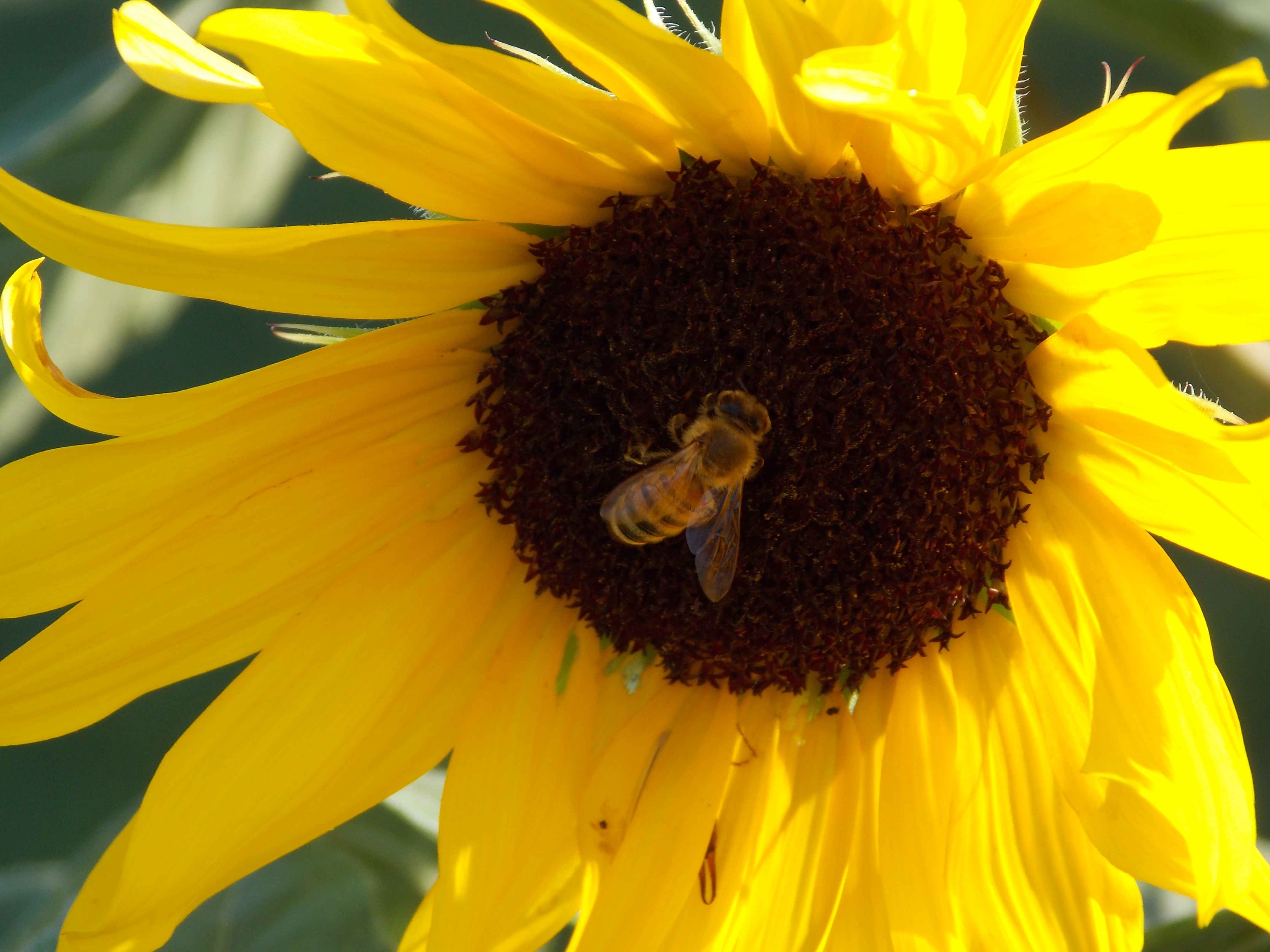
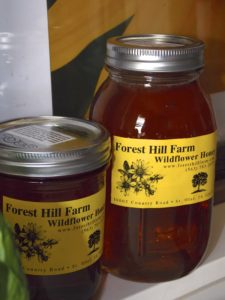 A few years ago Eva, our shepherd was in an accident. She had a wound on her paw that wouldn't heal. For over a year we tried several remedies. She wore boots like the dog's in the Iditarod, took antibiotics, went through miles of bandaging, nothing worked until she started healing with honey.
A few years ago Eva, our shepherd was in an accident. She had a wound on her paw that wouldn't heal. For over a year we tried several remedies. She wore boots like the dog's in the Iditarod, took antibiotics, went through miles of bandaging, nothing worked until she started healing with honey. 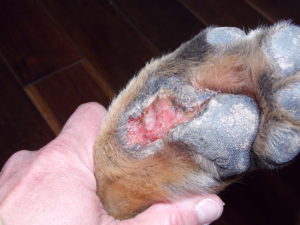
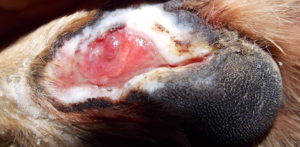
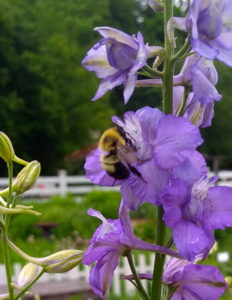 We haven't seen a Red Tailed hawk on this farm in three years. Where have they gone? The barn swallow numbers are declining, too. As a matter of fact there are fewer birds in the area. Their numbers have declined in the last few years. The peripheral area surrounding the timber, where the brambles and wild flowers are abundant, is prime nesting ground. The wild turkeys and pheasants are thriving but the local and migratory bird numbers are dwindling. Bird and Flying Insect Populations are on the Decline
We haven't seen a Red Tailed hawk on this farm in three years. Where have they gone? The barn swallow numbers are declining, too. As a matter of fact there are fewer birds in the area. Their numbers have declined in the last few years. The peripheral area surrounding the timber, where the brambles and wild flowers are abundant, is prime nesting ground. The wild turkeys and pheasants are thriving but the local and migratory bird numbers are dwindling. Bird and Flying Insect Populations are on the Decline